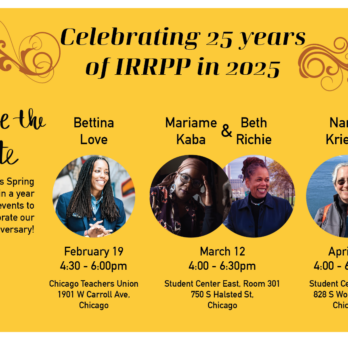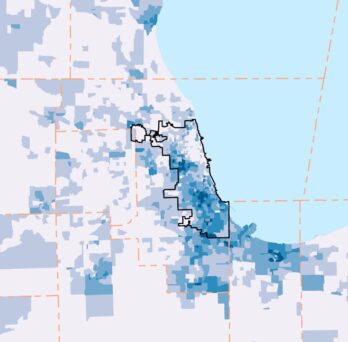Master of City Design
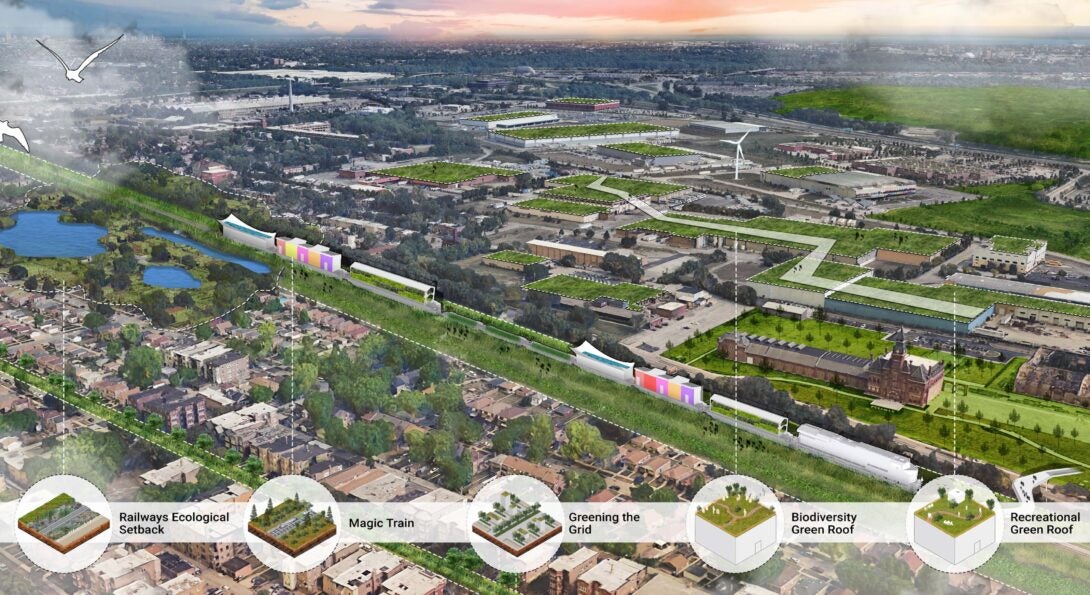
April MCD Info Session for Prospective Students
Our Approach to City Design
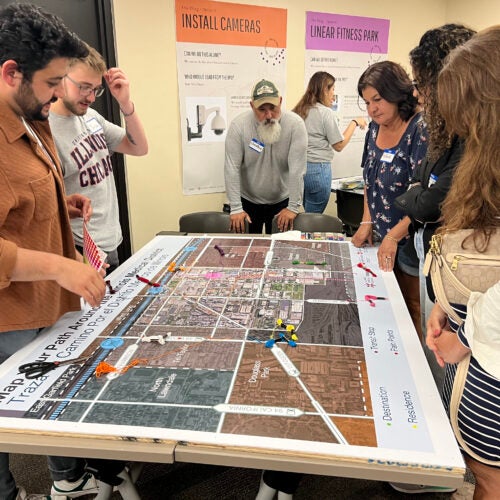
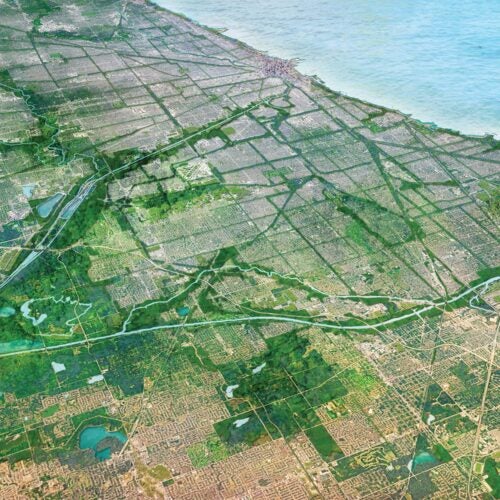
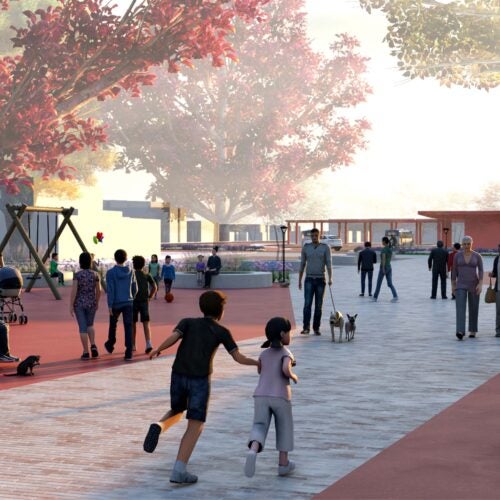
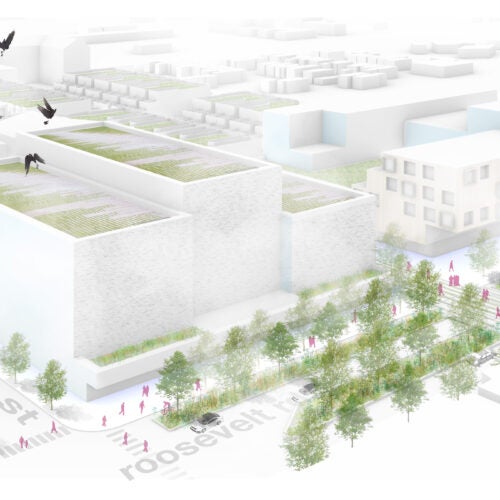
Topics of Interest
MCD Details:
Degree Requirements:
The MCD program operates as a one-year (Fall, Spring and 4-Week summer session) graduate program accepting students in the Fall semester. Students must complete all the academic and studio course requirements as well as sufficient number of electives to reach 36 credit hours in total.
Please refer to the UIC Catalog for more information.
Core Courses:
Unless a waiver is granted, the following courses are required:
- CD 503 Urban Spatial Analysis and Visualization
- CD 504 Theories of City Design
- UPP 508/ CD 508 Global Urbanization and Planning (existing course)
- CD 511 Urban Edge Studio
- CD 512 Great Cities Studio
- CD 522 Chicago Charrette I CD 523 Chicago Charrette II
Please refer to the UIC Catalog for more information.
Sample Schedule:
Fall Semester (16 credits)
- CD 503 Urban Spatial Analysis and Visualization (4)
- CD 504 Theories of Urban Design (4)
- CD 511 Urban Edge Studio (8)
Spring Semester (16 credits)
- UPP 508/CD 508 Global Urbanization and Planning (4)
- CD 512 Great Cities Studio (8)
- Selective (4)
Summer – 4 weeks session (6 credits)
- CD 522 Chicago Charrette I (4) CD 523 Chicago Charrette II (2)
Application
We are currently accepting applications to the MCD program.
Please refer to the UIC Catalog for more information.
Deadlines may be found at this page.
For MCD application information, contact citydesign@uic.edu.
Frequently Asked Questions about the Master of City Design Degree Program
What is city design?
City design is about enhancing the quality of urban life for everyone by improving the physical aspects of our settlements. The fields of urban planning and city design have continued to gain importance in recent times, both in line with a growing urbanized population worldwide and the perceived significance of large global cities like Chicago in contemporary human life.
Since a diverse range of people and places typically comprise human settlements, city designers frequently collaborate with different planning actors like place-based communities, public officials, subject-experts, real-estate developers, and progressive leaders interested in improving the built environment. In this respect, the fields of city design and urban planning routinely overlap with several professions such as architects who design individual buildings and civil engineers who design the in-between infrastructure. Urban planners focus upon the relationships and interaction effects among the different features of human settlements (such as employment locations, transportation networks, and air and water quality) by combining social, economic and political concepts and insights; while city designers concentrate upon the physical design aspects of these relationships.
The discipline of urban planning developed with the rise of modern metropolis around the turn of 19thcentury to overcome the limitations of much-older fields of architecture and civil engineering, which focused exclusively on the physical design of objects rather than the study of spatial relationships that shape their location and interaction over time; especially the complex social and institutional causes. The discipline of city or urban design began to develop more recently, from the 1960s, with a growing appreciation for vibrant public places and inclusive civic spaces vital to creating better cities than previous efforts.
City vs Urban Design
Yes, the two terms are broadly similar in meaning and purpose, but the word ‘city’ helps bring out our intellectual orientation as well as (brag a bit about) UIC’s geographical location. We use the term ‘city design’ following Kevin Lynch, a true pioneer of the urban design field. Lynch introduced the term for illustrating the connections between human values and the physical form of cities [that he considered vital for human civilization and further progress of our species] in order to describe how good city form might look like—both when conceived on paper and built on the actual ground.
Following this line of thinking, we believe that city design is best studied in rich urban contexts, like those available in Chicagoland, which provide an empirical basis through which our rapidly urbanizing planet can be experienced, analyzed, comprehended, re-conceptualized and eventually made better. In addition, our centrally-located campus at the heart of Chicago metropolitan region offers the unmatchable advantage of exploring a stunning range of differently-designed urban and suburban places offering pertinent lessons and relevant insights for students from near and far, home and abroad.
Apart from the great location, what is so special about UIC?
UIC is Chicago’s only public research university with an exceptionally diverse enrollment of more than 30,000 students from all over the world. With an explicit commitment to support and promote Great Cities of the World, UIC is also one of the only universities in the nation that is designated as both Research-Extensive and Hispanic-serving.
Housed in the college of urban planning and public affairs—devoted exclusively to studying public policies and urban planning initiatives supporting and shaping the public good—the department of urban planning and policy (UPP) offers the largest graduate planning program in North America, both in terms of current student enrollment and number of alumni over the last decade. Evident in extensive areawide linkages with a variety of allies and partners ranging from community organizations to planning agencies and professional design firms, few institutions can possibly match our (University’s / College’s / Department’s) collective commitment to urban places and their issues.
What will I learn?
The MCD curriculum is carefully conceived to help select students, drawn from an international pool of applicants, learn the craft of urban design within a community-oriented and city-focused environment. Students learn how to plan for the physical design of cities using spatial thinking that combines analyses of places, meaningful engagement with diverse communities, and design knowledge across scale. Hands-on field-based studio learning provides immersive exposure to integrated design and contemporary professional practice in complex urban places across Chicago. See detailed course descriptions here.
UPP’s 18 full-time faculty, as well as more than 20 visiting and adjunct faculty, are from different generations and backgrounds. Urban designers, spatial planners, community and economic development planners, environmental scientists, urban thinkers, political economists, human geographers and social activists enrich UPP’s cultural life. International representation and engagement is strong including one member each from Canada, Columbia, Japan, Argentina, Syria, China, Ethiopia, India and Serbia. All members of the full-time faculty hold a doctorate while many have substantial experience in various forms of urban design and city planning practice. UIC’s proximity to the center of Chicago combined with the department’s solid reputation and vast alumni network has allowed us to draw on a distinguished group of affiliated scholars and practitioners with a variety of interests, philosophies, and specializations for co-teaching in the MCD program.
Who Students City Design
Boundaries between professions shaping the built environment are often fluid. Urban planning and city design graduates, for example, work in and for architecture and engineering consulting firms because they offer the kind of spatial reasoning and expertise that addresses the demands designing for urban places all across the globe. But urban planning and city design graduates also work for governments, foundations, community organizations and other agencies seeking to anticipate and cope with the unexpected interactions generated in the process of making and using the physical features of settlements. Architects and engineers seek urban planning and city/urban design knowledge and degrees if and when they want to do this work. See the career path of some of our recent graduates here.
Backgrounds
The Master of City Design program is interdisciplinary and accept students from a wide variety of backgrounds including, but not limited to:
- Architecture
- Landscape architecture
- Urban planning
- Urban studies
- Fine arts
- Graphic design
- Industrial design
- Environmental studies
- Civil engineering
- Real estate
- Geography
Working?
Yes! We offer flexible course schedules to be inclusive of working professionals. Students will take studio courses (CD 511 and CD512) on Tuesday and Thursday evenings and other core courses (CD503) are offered on Wednesday evenings. One core course is currently offered Tuesday morning (CD504). Our MUPP program also offers a suite of electives in the evening to accommodate our primarily non-traditional, full-time professional student body.
Contact info
For inquiries regarding the Master of City Design program, please reach out to:
- Dr. April Jackson
Director of City Design, Associate Professor, Urban Planning and Policy
Email: ajacks29@uic.edu - Erica Mann
Academic Graduate Advisor, Urban Planning and Policy
Email: elmann@uic.edu



